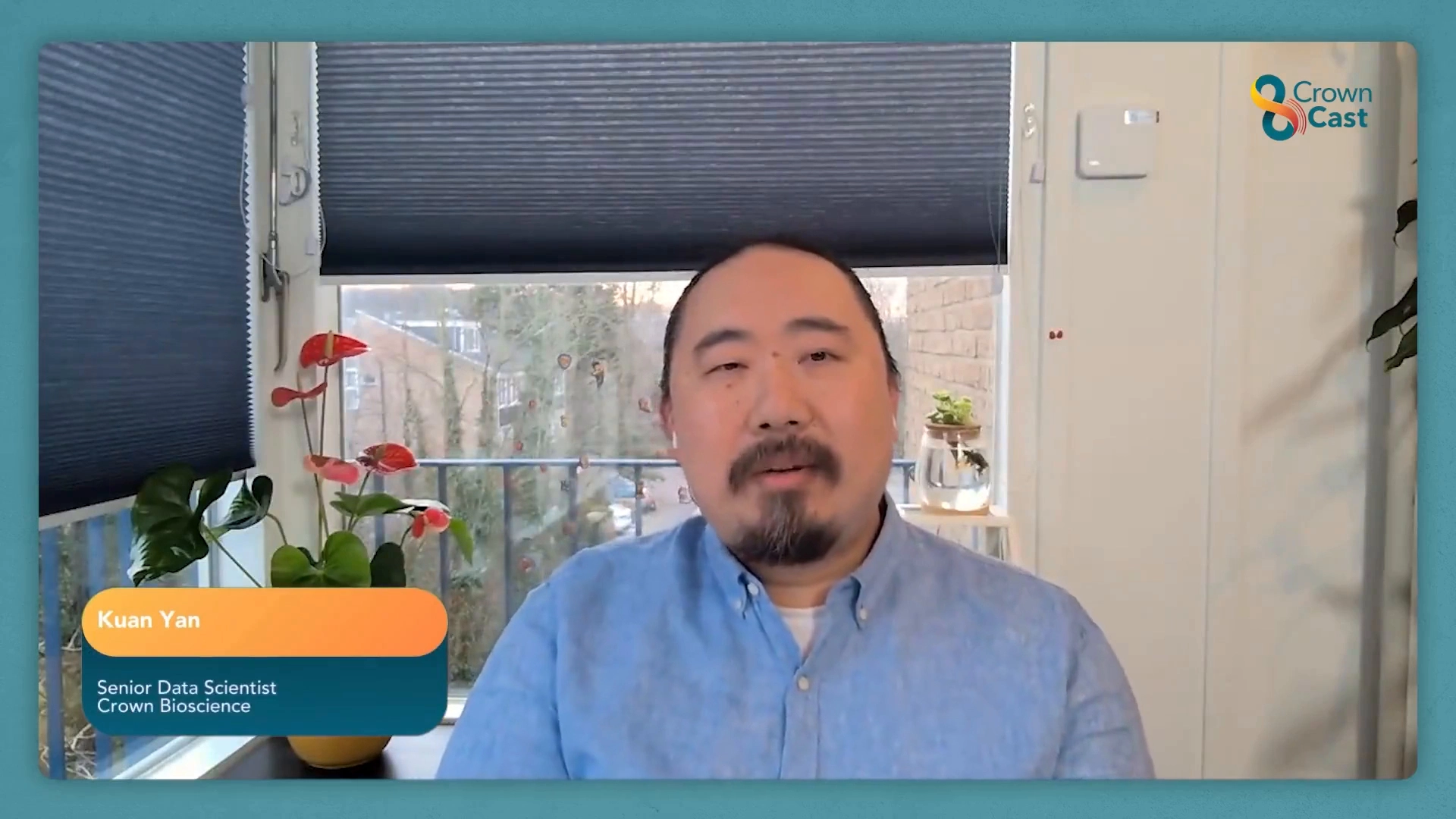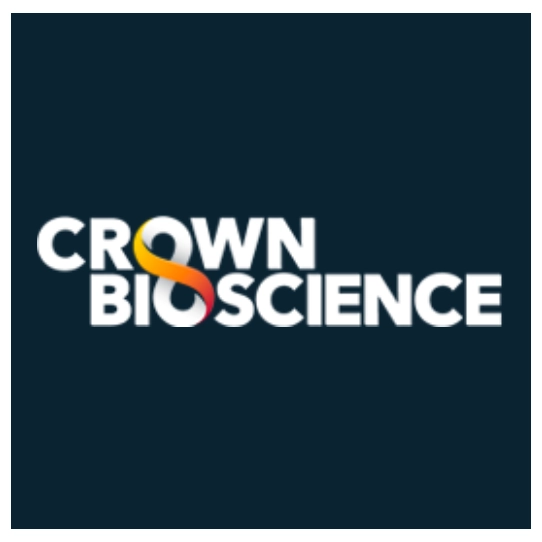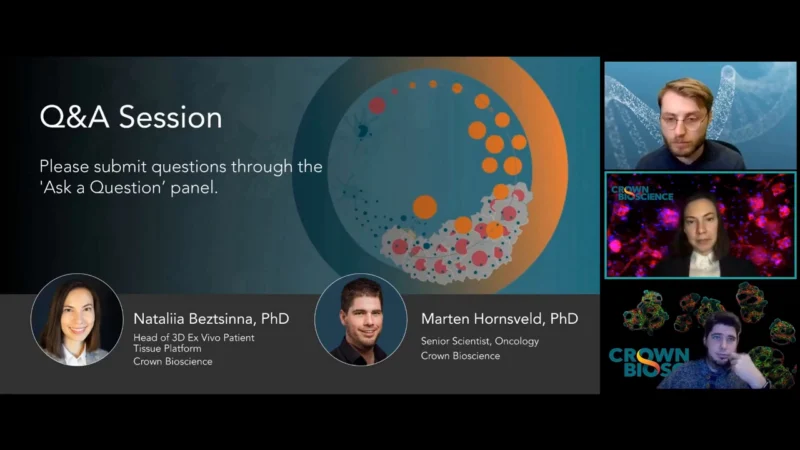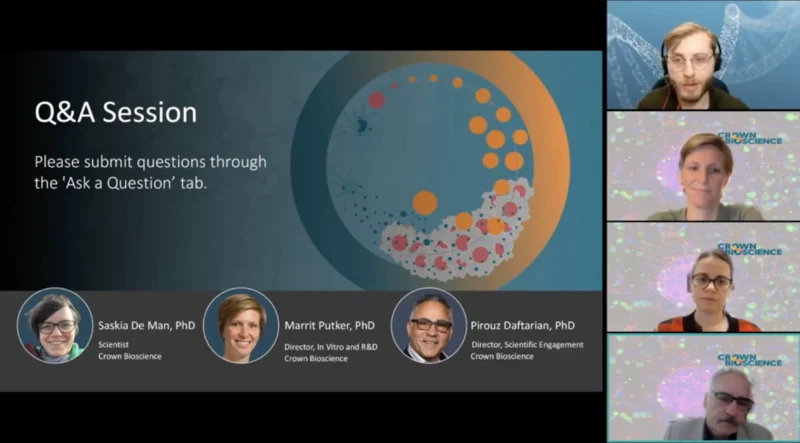April 19, 2025
AI Drug Engineering
Crown Bioscience
Data-Driven Research
generative AI
+more
Artificial intelligence is rapidly reshaping the drug discovery process, moving from augmenting research to actively driving innovation. As biotech companies face soaring R&D costs and long development cycles, AI promises a breakthrough: slashing drug development time by nearly half while improving accuracy in identifying promising compounds. With global pharmaceutical R&D spending projected to exceed $230 billion by 2026, efficiency isn’t just desirable—it’s critical.
Can AI transition drug discovery from a serendipitous search to a precise, design-led process? And what are the real-world applications—and limitations—of machine learning in today’s labs?
In this episode of Crowncast by Crown BioScience, host Jonny McMichael welcomes Kuan Yan, Senior Principal Scientist, and Jordan Lim, Associate Director of Digital Product. Together, they explore how AI is being used to automate workflows, optimize molecular designs, and provide advisory-level insights within CRO environments—all while navigating the complexities of regulation and data privacy.
Key Highlights:
-
AI is already accelerating early-stage drug discovery, from target identification to molecule generation and optimization—cutting development timelines dramatically.
-
Human-in-the-loop remains essential, especially for quality control, validation, and navigating the risks of AI’s “black box” nature.
-
Crown BioScience is developing internal AI frameworks to transform data into insights, optimize experimental designs, and ultimately deliver more value to clients.
Jordan Lim holds a bachelor’s and MBA from the University of California, San Diego, and brings a unique perspective from his work in patient advocacy, study coordination, and digital transformation at Crown BioScience.
Kuan Yan earned his master’s and PhD in bioimaging and image analysis from the University of Leiden. With over 15 years of experience in machine learning, he now leads AI initiatives as a Senior Principal Scientist at Crown BioScience Netherlands.





